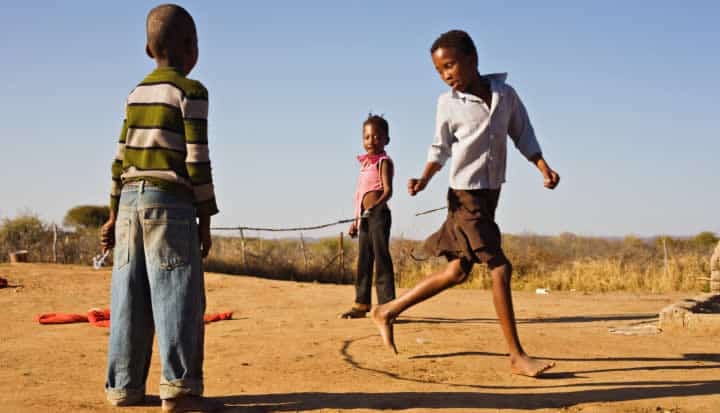The High Level Panel on the post-2015 development framework submitted its report yesterday (Thursday 30 May), giving the first indications of the settlement that will replace the Millennium Development Goals when they expire two years from now.
The debate has featured discussions on everything from plankton abundance to WiFi access, but one issue that stands out as a consistent point of agreement is that the challenge of ending poverty in our generation cannot be achieved by governments alone. Innovative partnerships- across civil society and both the public and private sectors- are a must if rhetoric is to become a reality.
It is this recognition of the scale of the challenges we face- both now and beyond 2015- that has driven the new strategic partnership between Save the Children and GlaxoSmithKline. Our ambition is to help to save one million children’s lives. It is an ambition that will only be realised by going beyond the traditional NGO-private sector partnership model based on fundraising, and by harnessing and scaling up the complementary skills and expertise that sit within our respective organisations.
In practice this means some very real changes to our organisational culture and approach to working with partners that might initially feel quite unusual. For instance, Save the Children will have a seat on a new paediatric research and development board that will be tasked with accelerating progress on life-saving interventions for children under 5 as well as identifying ways to ensure the widest possible access to medicines.
Immediate priorities for the development of new products include:
- Reformulating the antiseptic chlorhexidine – found in GSK’s Corsodyl mouth-wash – for cleansing the umbilical cord stump of new-borns to prevent serious infection, a major cause of newborn death in poor countries. Studies from South Asia suggest this simple intervention could prevent up to 1 in 6 new-born deaths in low resource settings. GSK will develop a new formulation and make this available to other manufacturers.
- Seeking the accelerated registration and roll-out of a child-friendly formulation of anantibiotic, used to treat pneumonia – which currently kills 1.4 million under-fives, in countries with a high-incidence of the illness. This will be developed in dose packs suitable for small babies and young infants. We will also explore the reformulation of an alternative child-friendly version in places where access to water and milk is not easy.
- Researching a new low-cost nutrition product in Kenya.
Beyond developing new medicines, we will look to bring in technology partners to help us widen vaccination coverage to the most remote communities. This will be achieved through using SMS messages to remind parents to take up vaccination services and by providing health workers and health facilities with smartphones to allow them to record and schedule vaccinations.
With much of the cost being absorbed by the relevant commercial department within GSK, we feel these examples of core business activity reflect a business model that could transform access to healthcare in the developing world.
Perhaps even more ambitious is the determination to work together to improve health care access for the poorest, through joint advocacy on the expansion of essential care. Our combined voices can help ensure that child mortality remains a top global priority, including within the post-2015 framework.
That is not to say that we are blind to some of the cynicism that has met the announcement of this partnership, with a number of critics questioning GSK’s motives. This scepticism miscalculates the value that Save the Children’s child health expertise and knowledge of marginalised communities in the developing world can bring to GSK’s understanding of its markets. There is nothing untoward about this. If more businesses want to understand the situation of the most vulnerable children in the world and bring that knowledge to their decision-making processes we are comfortable supporting that.
That cynicism also understates the remarkable journey that GSK has experienced under the leadership of Sir Andrew Witty. The adoption of a mixed business model, which accepts longer term returns for certain areas of the business, is central to the company’s trajectory. The Developing Countries and Market Access Unit combines social and financial objectives, with country managers incentivised on the basis of the volume of medicines distributed, rather than purely by profit delivered. Alongside a pledge that no patented drug will be priced at more than 25% of the UK price, the company’s commitment to transparency means it makes no political contributions, including in developing countries.
This does not mean that our organisations will always agree on everything. From Save the Children’s perspective we will endeavour to encourage these types of behaviour across all areas of the business, particularly in relation to patents, pricing and competition and the importance of public healthcare free at the point of use. Equally, we expect GSK will challenge our assumptions in areas such as service delivery and behaviour change communication. Inevitably, these issues will lead to robust discussions, but this dialogue will ultimately be to the benefit of the partnership, guided by the firm belief that we can achieve more for the world’s most vulnerable people by working together, rather than apart.










